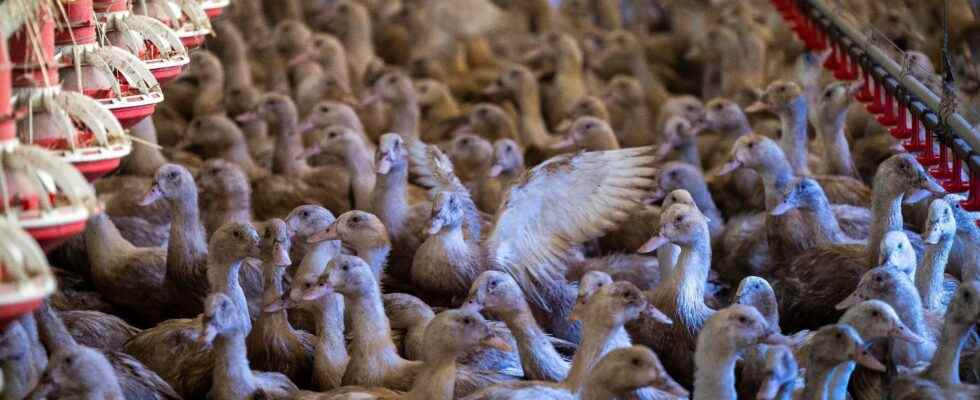This is a dizzying figure, equivalent to the population of France in the early 1970s. Between October 2021 and November 2022, 50 million poultry were slaughtered on European soil, according to a three-way relationship published, this Tuesday, December 20, by the European Food Safety Authority, the European Center for Disease Prevention and Control, and the European Union Reference Laboratory. And again, this number turns out to be higher if we consider the preventive slaughtering carried out on farms close to the outbreaks of contamination.
Thus, the health authorities report that this is the largest epidemic of HPAI – highly pathogenic avian influenza – ever observed in Europe. And the situation does not seem to be improving. Since September, the number of cases in waterfowl and poultry has continued to increase. Over one year, the report states that 2,520 outbreaks of contamination were detected in poultry and 3,867 in wild birds. France, the United Kingdom and Hungary are particularly affected by the virus.
Wild birds implicated
According to the report, it is wild birds, mainly aquatic birds (ducks, swans, etc.), which spread the virus inside poultry farms. “It is not necessary for the birds to be in contact to transmit the virus to each other”, explains one within the Ornithological Union of France (UOF). “The wind carries it from one place to another, and then the poultry contaminate each other”. It is therefore enough that the virus is very present among wild birds for the situation to become problematic. “In addition, the H5N1 virus does not immediately cause symptoms in the bird, which makes its detection more difficult and justifies preventive culling”, notes the UOF.
The question of vaccination of poultry arises, and is not new. France has developed a vaccine based on messenger RNA, but according to the National Food Safety Agency, it is not yet marketable. Asked this Tuesday on FranceInfo, the president of the FNSEA, Christiane Lambert, assures that it will be “in June 2023”. For its part, the European Medicines Agency intends to assess the availability of vaccines against HPAI during the second half of 2023. In the meantime, it is worth remembering that the bird flu virus is not dangerous for the male. But as it mutates very quickly, it cannot be ruled out that it will one day.
